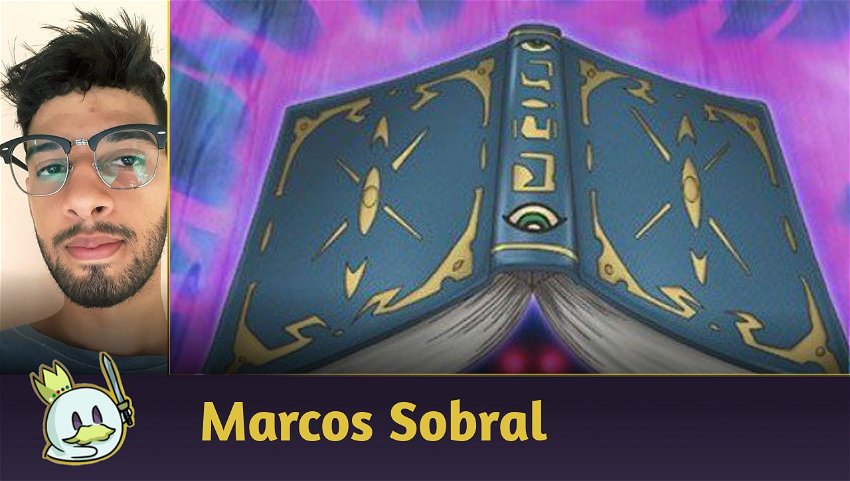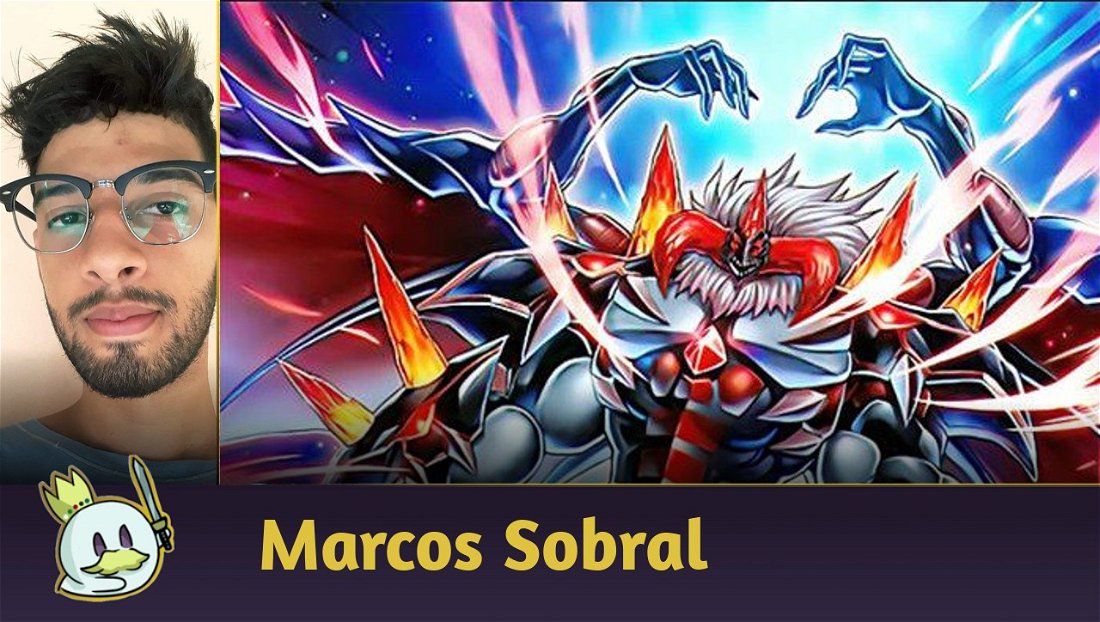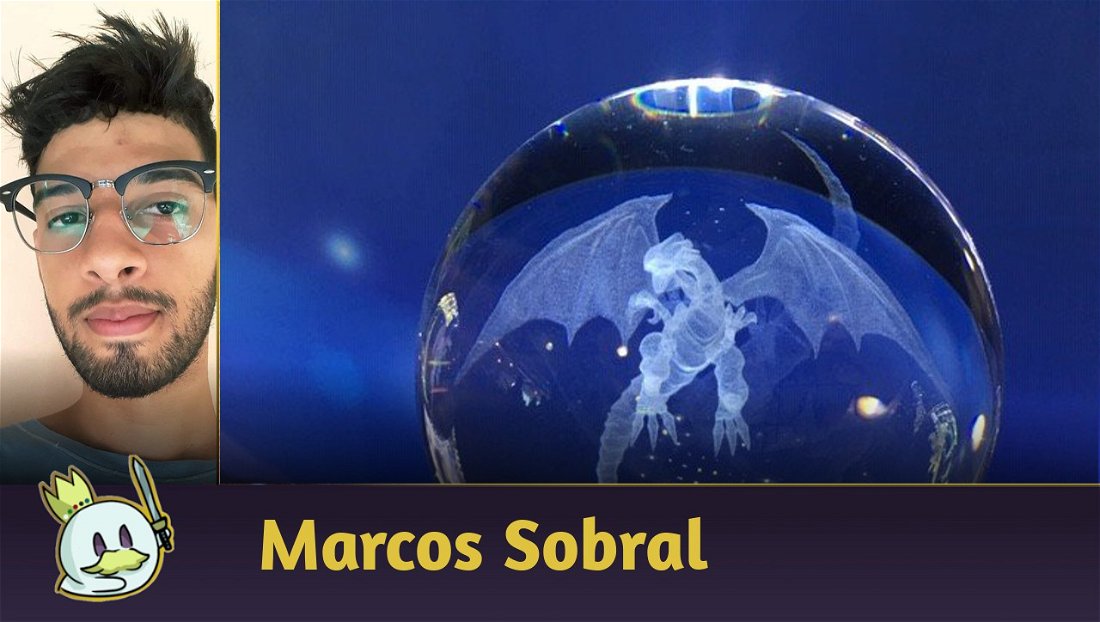Introduction
Dueling casually among friends and family is quite fun, but if we add how duels make us feel to competitiveness, you can reach a new level of fun! Besides that, there are other benefits tournaments can provide you, such as making new friends, learning new strategies and even winning prizes.
This way, if you want to venture into the world of Yu-Gi-Oh! TCG tournaments, it is interesting to prepare thoroughly to get good results. This article will be the right place for you to learn how to get to that goal.
Check out below everything you need to know to prepare yourself to play a Yu-Gi-Oh! TCG tournament.
What do You Need to Play a Yu-Gi-Oh! TCG Tournament?
To play a Yu-Gi-Oh! TCG tournament, you need to have a COSSY ID or KONAMI ID, which is an identification number necessary to participate in official Yu-Gi-Oh! TCG events. The easiest way to get a COSSY ID is through the Yu-Gi-Oh! Neuron app, which leads you to the registration website.
After getting your COSSY ID, you only have to find an OTS (Official Tournament Store), go to that spot, and register for the next event. To find an OTS in your region, you can access the list of registered stores at the official Konami website.
Another necessary element required to participate in tournaments is to check the legality of your cards, to make sure they're all up to date with the latest banlist.
Besides bringing your deck and your playmat, it's interesting to bring items such as dice, paper and pen to write down your life points. Traditional weekly tournaments are less strict about that, but you'll find that it is important to write down everything you can in big tournaments to avoid any problems.
How do I Prepare Myself to Play a Yu-Gi-Oh! TCG Tournament?
Knowing the Rules
To prepare to play a tournament completely, the first step is to have a good grasp of the broad Yu-Gi-Oh!TCG rules. You don't need to be an expert, but it is interesting to know enough to not make obvious mistakes or be deceived by your opponents. To be more familiar with the rules, we suggest you read the rulebook.
Besides that, as important as knowing the broad rules of the game, you need to dominate the rules relating to your own deck and the main interactions that tend to be used against it.
Even though it looks simple, knowing a little bit more than your opponent might be a determining factor to winning.
Define Your Goal in the Tournament
Another important thing is to define a personal goal for that tournament you'll play. After all, this will greatly influence how you'll build/choose a deck. Once you're preparing for a tournament, I believe you want to do well in it, with the goal of winning it or at least getting a good spot in the ranking. Even though these goals may seem similar, there are different approaches to make sure you'll reach your goal. What's in question when we speak of defining a goal for a tournament is that there are different levels of decks and players, and that really influences your tournament results.
A beginner player will hardly win a tournament, as they'll have to face many other players who have more experience or skills, and being too hard on yourself can greatly impact your performance negatively. Besides that, the level of the deck you'll play is also relevant, and it is not likely something too out of the meta radar will win the tournament, even if it's possible a rogue deck or another gets to the top.
As a result, if you're not an experienced player, I believe what's ideal for you to do is to prepare yourself to get a good ranking in the tournament. For that, your main deck should be very generic, to guarantee you won't have dead cards while facing any matchup, leaving more specific cards in your side deck to add them only when you're sure they'll be useful.
As for players who consider themselves to be more experienced to the point of fighting for Top 1, I believe the best approach is to focus your main deck on decks that make up the meta, and your side deck should be focused on specific matchups against players in the event. Because, by following this logic, you'll win against less experienced players without specifically preparing for them, but you'll need the "prep factor" to face high-level players.
Meta Call Analysis
The Meta Call analysis is the factor which I, particularly, consider to be the most important one, and most fun one, when preparing for a tournament. In some regions, the local meta doesn't keep up with Yu-Gi-Oh! TCG's global metagame, and, as a result, you need to figure out which are the main players/decks in that context and prepare thoroughly to go up against them.
If defining your goal in the tournament helps you choose your "enemies", the Meta Call analysis helps you choose your tech cards. Once you already know which are the strongest decks or the most popular decks in the tournament, it's time to build your deck according to the goal you've set previously.
So, if you want to get to the top, use more generic tech cards in your main deck so that they're useful against most decks present in the event. In your side deck, use high-impact cards, but still keep them centered around the local meta.
If you would like to win the tournament, use techs focused on the current meta in your main deck, as these will probably be the most common matchups you'll find in high-tier tables at the event. In your side deck, use high-impact cards centered around unfavorable matchups within the metagame, and within the decks used by the most prominent players in that region.
If you don't know how the decks you'll possibly face work, you need to study the local metagame. Learning the main meta deck's combos, the right time to interact with them, and the best techs you can use to stop them are common practices among Yu-Gi-Oh! TCG players who go to tournaments frequently, and, of course, it is really helpful to know how to deal with what's strongest in the game! However, when preparing for a specific event, you should align this study with your Meta Call.
A quick and dynamic way of learning how decks work is to look for videos showing combos and commented matches with those decks on YouTube, where there are many channels focused on this type of content.
Final Words
So, what did you think of the tips? Did you miss any? Leave your comment down below.
If you want to study the game more, check out more of our competitive articles.
To get more tips and further information regarding the Yu-Gi-Oh! TCG world, keep on browsing our article. Cards Realm thanks you for your support!














— 코멘트 0
, 반응 1
첫 댓글을 남겨보세요